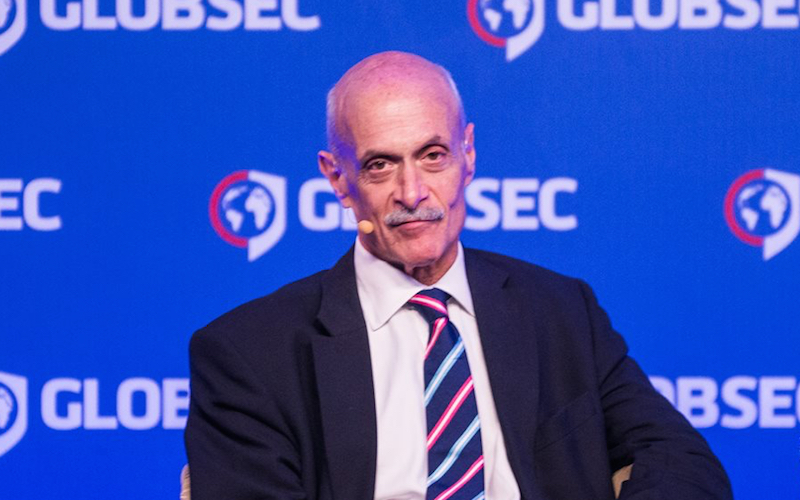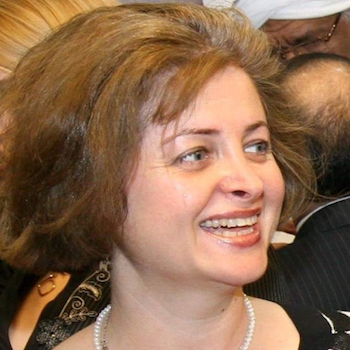
Information Sharing and Cooperation Needed Across Europe
1,000 participants from more than 70 countries attended GLOBSEC 2016 in Bratislava which focused primarily on security-related issues. Many pertinent topics, especially terrorism and the refugee crisis were discussed.
Madeleine Albright, the guest of honor, received the Transatlantic Award. She stated that “The U.S.-Chinese relationship is the most important relationship for the U.S. in the 21st century.” She believes that the United States is considering more “cooperation on migration” and “re-affirming our relationship with each other” and “how our partnerships with the other will look.”
U.S. Sen. Christopher Murphy said that “the rise of China, the future of Russia’s interventions, the future of Europe and climate change” are his primary concerns. He confirmed that “the US is accustomed to solving all problems, the U.S. will remain the indispensable nation, will continue to be everywhere and to share responsibilities with the others but there is a limit to American resources.” Regarding global terrorism, Murphy outlined that both military and non-military means should be employed as deterrents.
Many participants suggested that terrorism will be a challenge for many years to come, and will be curbed, to a certain extent, as countries learn how to cooperate, build capacities and share information.
Michael Chertoff, former U.S. Secretary of Homeland Security, emphasized that “given the kind of attacks we have seen during the last 6 month in Europe, we understand that Daesh will shift, as a result of the loss they had, and they will try to make people in Europe pay a price.”
He recommended not creating a large security organization which is hard to manage, but instead to create efficient collection first in PNR-type files which should be shared among intelligence organizations and law enforcement. “If we would have had passenger data, we would connect 15 out of 19 hijackers of the 9/11 flights to terrorist organizations and they would not get aboard. Europe is learning this only now,” concluded Chertoff.
That line of thinking was also the conclusion of Hedayah Centre, the international terrorism and radicalism studies center in Abu Dhabi, a few years ago, and was mentioned by Fareed Zakaria in March in the Washington Post as “today’s terrorists are not religious extremists who became radicals but rather radicals who became religious extremists,” Chertoff explained that the radicalization process should be seen as potentially taking place among people who already have a propensity for crime, and become radicalized when a trigger experience occurs in their life. Chertoff suggested that the PNR-type files can be very helpful in monitoring criminals’ activities, identifying their radicalization, and taking preventive steps. “This is how we should think in the future. Our technology should help us see these deviations in the lives of people with potential to radicalize, and we should also differentiate between low-scrutiny and high-scrutiny when doing this.”
General Ephraim Lapid, former head of the Israeli Defense Intel Service, assured the participants that “terrorism can be overcome 24/7 if institutions are alert and well trained!” As an example, Israelis face daily threats and have somehow “adapted to permanent threat, and have acquired a cultural resilience.” He stressed that “terrorism is a virtual term and we should not forget that we must monitor people! Cooperation among intelligence services is vital, one country cannot monitor. Thousands of people should be monitored, out of millions. In Israel we need to pick from 8 million intelligence pieces every day. And yes, we have this permanent dilemma: freedom versus security of the population.” Lapid evoked the unique terrorism-response exercise that Israel practices every year, involving the entire population, from children to the Prime Minister, to check resilience and to train and improve cooperation among sectors.
Miroslav Lajčȁk, the Slovak Minister of Foreign Affairs, explained that, in Europe over the next years, the “Most pressing problems are going to be migration, terrorism, Russian aggression and Brexit.” The level and spread of the refugees’ crisis is the worst since WWII and is an existential challenge for the EU.
Angeliki Dimitriadi, a migration expert with the Hellenic Foundation for European and Foreign Policy, stated that it should be called a “management crisis” because there is “poor leadership” on this issue and there are management failures. On the other hand, she admitted “there is fatigue in Europe after so many crises: European economic crisis, Greek crisis, now the refugee crisis…”
However, Roland Freundenstein, deputy director of Wilfred Martens Centre for European Studies, stressed that the scale of the refugee crisis is too high, “protecting them is one thing and integrating them is a totally different thing, 60 million people are refugees from the failed states, and it is not easy to integrate them, the mothers and fathers of the European Union did not foresee that. Another aspect is that culture matters! Interculturality is a sensitive issue.”
František Šebej, Slovak politician and academic, stated that the refugee crisis has triggered a value crisis and fear in Europe.
Kolinda Grrabar-Kitarovič, Croatia’s president, said that “Europe must find a common foreign policy and address the root causes because I am sure everyone wants to stay in their own country and contribute to the prosperity of their own countries.”
One clear idea that surfaced during the talks is that every country has a different democratic culture which comes from their own understanding of how to defend their people.
John Frank, of Microsoft, believes that “data protection regulations need to be designed to allow intelligence requirements to be mapped. For instance, when the refugees arrived, we were not allowed to check their fingerprints in databases.”
Other topics in GLOBSEC 2016 covered security and defense in space. Dumitru-Dorin Prunariu, a retired astronaut, vice-president of the Foreign Relations Committee of the European Space Agency and president of the European chapter of the Association of Space Explorers, gave a detailed and technical presentation about the “Critical Space Infrastructures that are subject to numerous specific threats, intentional and accidental, such as the risk of ground-based ASAT missiles, collision with space debris and other space objects, and space weather phenomena. Orbital systems play a key role in defense and military activities. They are force multipliers that provide intelligence, surveillance, and reconnaissance capabilities. For instance, 68% of American ammunition used in Iraq (2003-2011) was guided through satellites.”
The 145 speakers who attended GLOBSEC 2016 showed no reluctance in expressing their well- articulated views about the current security issues at stake.
